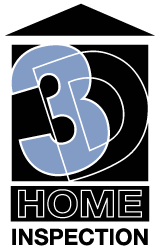Everyone admires a beautifully decorated home for the holidays. Here are some holiday safety tips to help you avoid holiday accidents and incidents.
Holiday safety Tips for CHRISTMAS TREES
Freshness
Buying your tree at a store or tree lot? Here’s how to check its freshness.
- Trees should be naturally green and not painted. They are often cut long before the holidays. Then, they’re painted to make them appear freshly cut.
- When you bounce the trunk on the ground, the needles should not drop off.
- Bend a needle between your fingers. If it breaks, the tree is not fresh enough.
- Have the store make a fresh cut about one to two inches from the bottom. A sticky resin (sap) will emerge on the trunk butt of a fresh tree. This cut will also help the tree to absorb water and remain fresh after you get it home.
When you Get the tree home
Place your tree in a stand as soon as you get it home, if possible. If this is not possible, keep the tree outside and away from the wind and sun. Place the bottom in a bucket of fresh water. If you can, make your own fresh cut an inch or so from the bottom just before putting it in the stand.
Your tree stand should be clean. Make sure it can hold plenty of water, too. A six-foot tree will use about one gallon of water every two days. Check the water level every day.
Once you get the tree in its stand, make sure the tree doesn’t wobble. If it does, first try repositioning it. If that doesn’t work try a larger stand or secure the tree to the walls or ceiling.
Where to Place your tree
Set your tree at least three feet from heat sources. Furnaces, radiators, floor heaters and fireplaces can dry trees out. They can even pose fire hazards. Never block an exits with your Christmas tree.
Keep small children and pets from your Christmas tree. This can be challenging. But kids and pets can be injured by pulling or knocking the tree over.
Disposing of your Christmas tree
Dispose of the tree after Christmas or when the needles start to drop off. Dried out trees are very flammable, so not leave it in your house or garage when it’s dried out. Never burn the tree in your fireplace. It will burn like tinder. Flames can flare out of control and send sparks flying into a room. Hot sparks up the chimney can ignite creosote deposits.
What about artificial trees?
Many of the same holiday safety tips apply to artificial Christmas trees. First, they should be fire-retardant. The rules about where to place the tree apply to artificial trees, also. And keep the kids and pets away to avoid injury from the artificial tree falling on them.
Holiday Safety Tips for Lights
Types of Lights to Use
Indoor lights can only be used indoors. If you are using lights outdoors, make sure they are made for outdoor use. Outdoor electrical connectors should be above ground and away from snow or puddles of water. Outdoor lights should be fastened securely to the house, trees, etc.
Don’t use electric lights on metal trees. The tree can become charged with electricity from faulty lights and anyone touching it could be electrocuted. Colored spot lights are a great way to provide highlights on metal Christmas trees.
Light Safety
Lights and extension cords should have a certification from a testing laboratory, such as UL (Underwriters Laboratory). Inspect lights and extension cords before they are strung up. Discard any that are frayed, broken, have loose bulb connectors or missing plug blades or grounding pins. Unplug lights from the power source before you replace bulbs.
Position the tree near an outlet so the cords are not running long distances. A string of lights should be no more than three strands long (verify with manufacturer). Do not run electric cords under carpet. Avoid overloading wall outlets and extension cords. Use miniature lights which have cool burning bulbs.
Lights and extension cords should be unplugged when they are unattended – when no one is home, everyone is in bed or no responsible person is around. Lights could short and start a fire.
I hope these holiday safety tips help you have a safe and happy holiday season. Enjoy!
These home maintenance tips are not intended to be all-inclusive, but rather general guidelines. All tips may not apply to every home. We recommend that inspections, repairs and maintenance beyond the abilities of the homeowner be performed by a qualified, licensed (if applicable) contractor or tradesman specializing in that item or system, and certified in the necessary safety procedures. Carefully follow manufacturer’s instructions.
